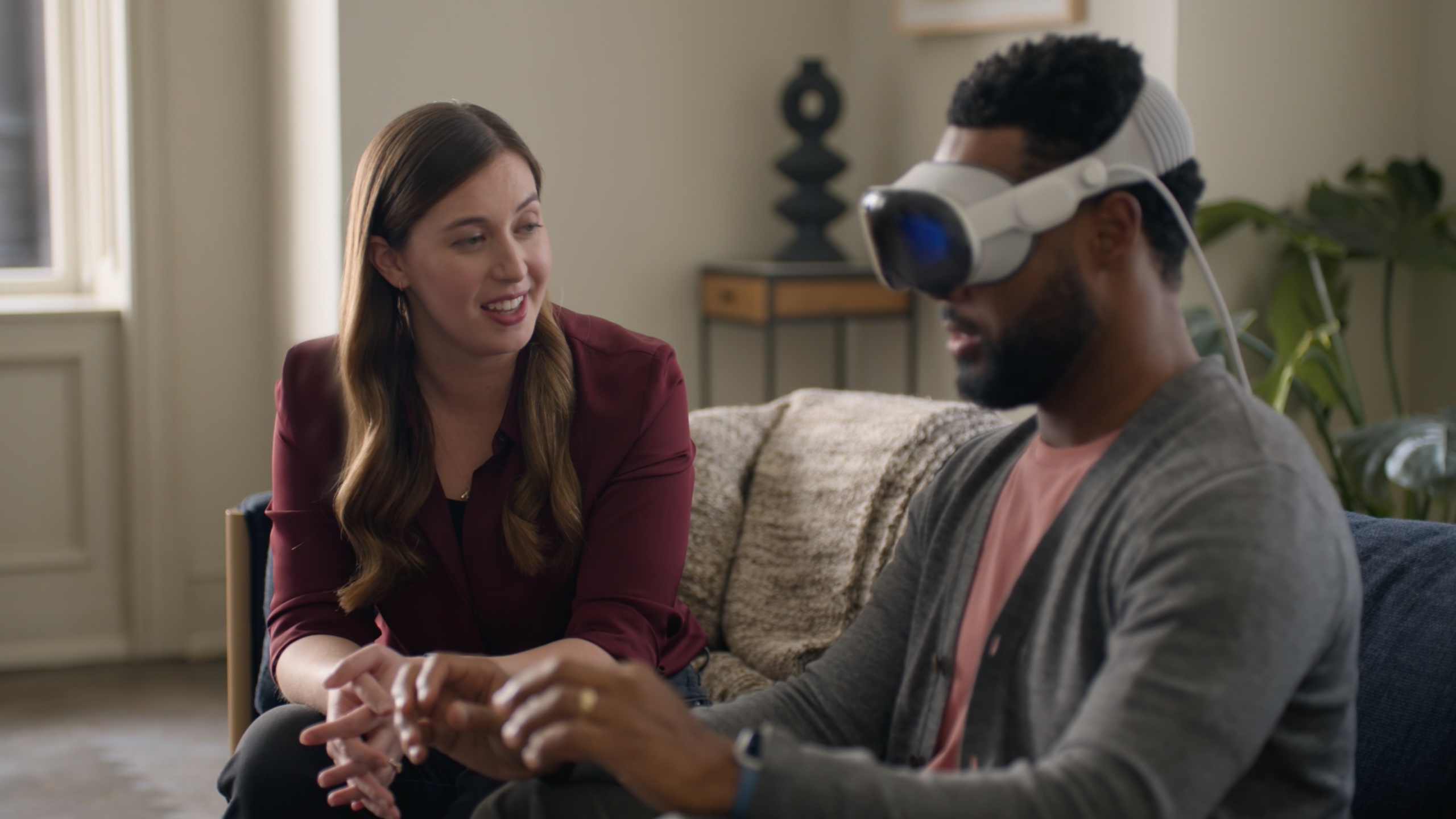
Apple's Vision Pro continues to get all the headlines as well it should — the $3,499 headset goes on sale on February 2 after months of waiting. But Apple is already working on future models and one of them might have a feature designed to help it know when its own bulk is starting to get a bit much for the head that it's sat on.
A new patent suggests that Apple is well aware that wearing something like the Vision Pro headset for extended periods of time could be problematic, especially for people who don't have the neck muscles required to wear it comfortably. While the headset isn't as heavy as some had expected, some of those who have spent time with it have already commented that it can become uncomfortable after a while. With that in mind, Apple seems to be working on ways to alleviate that problem or, at the very least, preempt it.
The new patent suggests that Apple's future Vision Pro will sense the strain that it is causing on the wearer and then alert the wearer if it believes the strain is too much. The feature appears designed to allow future headset wearers to become aware of strains before they happen, preventing injury.
Preemptive measures
The patent, which was first spotted by AppleInsider and is named "Method And Device For Tiered Posture Awareness," doesn't explicitly mention the Vision Pro of course. Patents like this are vague by design to ensure that they can be used more broadly and by not mentioning its headset by name, Apple can use the same patent on future models no matter what they might be called.
The system described in the patent appears configured to take a baseline reading of the wearer's muscles when the headset is first put on and then use that information to calculate when the strain is reaching problematic levels. When that happens, a visual indicator could be used to warn the headset wearer. They would then likely be invited to take a break and return to the headset after a period of rest.
It's clear that Apple is aware that neck fatigue could be a key issue for Vision Pro wearers, especially if the company has received similar feedback from those who have spent time with it to date. How much of an issue it really is isn't something we will know until more people start to receive their Vision Pro headsets in the first week of February.
Apple announced the Vision Pro on June 5, 2023, at the company's WWDC event. It was largely radio silence from there on out but the headset went up for preorder on January 19 with prices starting at $3,499 for the 256GB model. Configurations with 512GB and 1TB of storage are also available, as are a range of accessories. Those accessories include a $199 travel case that can be used to take the headset on the road, while a second battery will also cost the same amount of money. A Belkin holster is also available so that people can clip the Vision Pro's battery to themselves, too, although that's more reasonably priced at just $50.
Apple is already thought to be working on a cheaper Vision Pro, but it isn't expected to ship any time soon.







